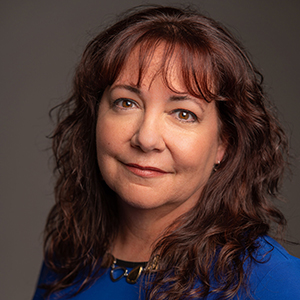Get Your Free Mesothelioma Guide

Find a Top Mesothelioma Doctor

Access Help Paying for Treatment

A mesothelioma diagnosis can affect mental health. Many patients in cancer treatment struggle with depressed mood and anxiety. Mental health issues do not cause cancer, but help is available if cancer is making life harder and more stressful.
A diagnosis of mesothelioma can be frightening and demanding. Learning you have cancer can overwhelm even your best coping skills.
Mental health may not be at the top of your concerns after a mesothelioma diagnosis, but it’s important to take care of your mind and body.
Understanding the level and type of psychological distress common among mesothelioma patients is a good place to start.
Learning about the connection between cancer and mental health, along with ways to manage these challenges is another important step. This will put you on the path to finding the support you need.
A focus on mental health awareness and self-care for mesothelioma patients should be a priority. Your doctors, nurses and caregivers know you’ll do better during treatment if your emotional needs are met.
A diagnosis of mesothelioma or any type of cancer can be overwhelming. Many people experience denial about their condition. Moving forward can be challenging.
Mesothelioma survivors and mental health experts share the following tips with The Mesothelioma Center for patients now living with mesothelioma:
Staying busy can help, but remember to be kind to yourself and let yourself rest when needed. Survivor Kasie Coleman shared, “Enjoy your life. You’ll view life and live life completely differently now because you truly understand how precious life really is, better than anyone. Accept your diagnosis, get focused, fight and win.”
There are many studies of cancer and mental health, though only a small portion of these investigations focus on mesothelioma. In March 2018, the American Journal of Industrial Medicine published a review of the best research on this topic.
One common theme emerged from the papers: Mesothelioma patients experience significant psychological distress. The study authors documented stress reactions among people who had received a mesothelioma diagnosis.
Patients and families expressed shock, dismay, anxiety, depression, apathy, difficulty concentrating, anger and social dysfunction. If you’ve been through this, it may help to know you’re not alone in feeling this way.
Get Your Free Mesothelioma Guide

Find a Top Mesothelioma Doctor

Access Help Paying for Treatment

Research supports that health care professionals play an important role in the severity of distress among mesothelioma patients. In particular, health care providers with better communication skills lessened distress and trauma among patients.
This finding supports the importance of seeing a mesothelioma specialist. The most knowledgeable doctors and nurses are in the best position to help you navigate treatment options. They can do this with skill and compassion.
Knowing you’re in the hands of true mesothelioma experts will make cancer treatment more manageable.
Many cancer treatment centers do not have a mesothelioma specialist on staff. This doesn’t mean patients should immediately go somewhere else for cancer care. It simply reflects the fact mesothelioma is rare.
Only a small number of oncologists are considered experts in managing mesothelioma. If your current cancer doctor does not have much experience treating mesothelioma, ask for a second opinion.
Don’t worry about offending your doctor. Oncologists are used to consulting with others. They request second opinions from other doctors themselves.
Your cancer center can help you put the pieces in place to get a second opinion. This might include sending scans, medical records and blood tests to the consulting physician.
A mesothelioma specialist also can be an important link to learning more about clinical trials. An experienced mesothelioma doctor may be conducting a study or have more awareness of ongoing trials appropriate for your diagnosis.
All of this information can contribute to better mental health during chemotherapy, radiation therapy and other treatments you are considering.

Learn about your diagnosis, top doctors and how to pay for treatment in our updated 2025 guide.
Get Your Free GuidePeople diagnosed with cancer can develop depression and anxiety. According to the National Cancer Institute, up to 25% of cancer patients experience depression.
The depression rate among the general public is around 7% of adults. These statistics suggest the stress of cancer contributes to some forms of mental illness.
People studying the mental health of mesothelioma patients have documented something called “sickness behavior.” This is a set of nonspecific symptoms — fever, loss of appetite, depression, anxiety, trouble making decisions, poor concentration and heightened pain response — occurring in response to receiving the diagnosis.
There is good news: Mesothelioma supportive care works. Quality of life improves, and distress decreases for mesothelioma patients who receive the help they need to cope with their diagnosis.
Distress decreases in mesothelioma patients who participate in The Mesothelioma Center’s support group and seek counseling from a licensed mental health professional with expertise in cancer care. People also see significant benefits from physical therapy care to improve physical function, improved diet and palliative care.
Many also find peace of mind from clear and accurate legal information on the possibility of compensation. Getting needed physical, emotional and financial support can help patients maintain strong overall health after a diagnosis.
Recommended ReadingStay up-to-date on treatment, research, clinical trials, doctors and survivors
The information on this website is proprietary and protected. It is not a substitute for professional medical advice, diagnosis or treatment. Any unauthorized or illegal use, copying or dissemination will be prosecuted. Please read our privacy policy and terms of service for more information about our website.
This website and its content may be deemed attorney advertising. Prior results do not predict a similar outcome.
The Mesothelioma Center’s claim as the most trusted resource is based on our more than 150 5-star Google and BBB reviews. Our organization also helps more than half of all mesothelioma patients annually diagnosed.
Your web browser is no longer supported by Microsoft. Update your browser for more security, speed and compatibility.
If you are looking for mesothelioma support, please contact our Patient Advocates at (855) 404-4592
The Mesothelioma Center at Asbestos.com has provided patients and their loved ones the most updated and reliable information on mesothelioma and asbestos exposure since 2006.
Our team of Patient Advocates includes a medical doctor, a registered nurse, health services administrators, veterans, VA-accredited Claims Agents, an oncology patient navigator and hospice care expert. Their combined expertise means we help any mesothelioma patient or loved one through every step of their cancer journey.
More than 30 contributors, including mesothelioma doctors, survivors, health care professionals and other experts, have peer-reviewed our website and written unique research-driven articles to ensure you get the highest-quality medical and health information.
My family has only the highest compliment for the assistance and support that we received from The Mesothelioma Center. This is a staff of compassionate and knowledgeable individuals who respect what your family is experiencing and who go the extra mile to make an unfortunate diagnosis less stressful. Information and assistance were provided by The Mesothelioma Center at no cost to our family.LashawnMesothelioma patient’s daughter


Dixon, S. (2025, June 27). Mental Health and Mesothelioma. Asbestos.com. Retrieved December 30, 2025, from https://www.asbestos.com/support/mental-health/
Dixon, Suzanne. "Mental Health and Mesothelioma." Asbestos.com, 27 Jun 2025, https://www.asbestos.com/support/mental-health/.
Dixon, Suzanne. "Mental Health and Mesothelioma." Asbestos.com. Last modified June 27, 2025. https://www.asbestos.com/support/mental-health/.

Dana Nolan, MS, LMHC, is a licensed mental health counselor who leads The Mesothelioma Center’s monthly support group. She specializes in working with people affected by cancer. Dana has experience with inpatient and outpatient counseling, and clinical research in the U.S. and Australia. Dana practices in Altamonte Springs, Fla.
Our fact-checking process begins with a thorough review of all sources to ensure they are high quality. Then we cross-check the facts with original medical or scientific reports published by those sources, or we validate the facts with reputable news organizations, medical and scientific experts and other health experts. Each page includes all sources for full transparency.
Please read our editorial guidelines to learn more about our content creation and review process.
